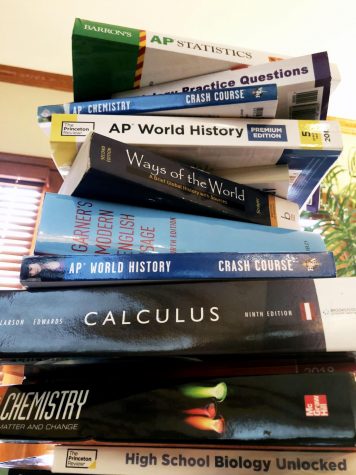Impacts of 2020 AP Exam Changes
May 5, 2020

The College Board’s changes to this year’s AP exams have prompted great worry and confusion among
students and teachers alike.
While much remains uncertain in today’s world, one thing has been constant: standardized testing. As the end of the year slowly approaches, so do Advanced Placement (AP) Exams: the annual culmination of a year’s worth of course material.
Only this year, due to the current COVID-19 situation and the decision by schools nationwide to cancel in-person classes, AP exams had to adapt as well.
Much of the tests’ content – as well as their timing – has been changed significantly this year. “It’s a whole new test,” said Sam Wold, who teaches AP World History, one of LFA’s most popular AP courses. “In some ways, I think they’re doing the best they can with the situation. It’s so unprecedented that there’s nothing really that they could have done to plan for something like this.”
Nearly every section of the exam has been changed; all exams will only last 45 minutes instead of the standard two to three hours; the tests are completely online, open-note, and writing-based; and exams will be taken simultaneously worldwide. For AP World History specifically, the material has been condensed to exclude the 20th century, and the exam includes only one document-based question (DBQ).
As Wold describes, “There’s a lot of pressure now for everything to be based on one DBQ, but I think LFA in particular is in pretty good shape.”
However, as many of Wold’s students are currently in different time zones, he acknowledges the simultaneous testing will be difficult for many international students. “My test is at 1 PM, which means it’s 2 or 3 AM in most of Asia,” he noted. “Hopefully, a lot of students have stayed up late… so they’re a little bit familiar with that time frame, but I don’t think there’s a perfect answer, a solution that’s going to work for everybody.”
“It’s definitely putting international students at a disadvantage. But I’ve been impressed by the LFA students that are in that situation, and how they’ve been adapting and trying to figure things out. They’ve been really amazing,” Wold added.
Concerns about the new format have also been echoed by students. “Personally, it makes me really stressed out because I’m not really technologically advanced when it comes to setting up my computer by myself, so I’m kind of scared I’ll mess something up and fail the exam,” said Isis Burgos ‘20, who is planning on taking the AP Statistics, Economics, and Spanish Literature and Culture exams in May.
“It’s also pretty annoying that they [the College Board] cut the exam super short, because if you mess up badly on the one question you have to answer there’s not much you can do to redeem yourself,” continued Burgos.
Hadley Fagan ‘21 agrees. “I do believe that we should be tested.. [but] I feel like multiple choice would be a more effective way to test all our knowledge,” said Fagan, who plans on taking the AP Chemistry, US History, English Language and Composition, and Calculus AB exams. “I feel like we won’t get tested on the material that we learned throughout the year.”
However, there’s always a bright side, as Fagan admits, “I like color coding my review sheets,” which can now be used during the exam for the first time due to the new open-note policy.
In the end, only time – specifically, 11 AM CDT on May 11th, when the first AP exam of 2020 will take place – will tell how effectively the new changes will work. Until then, we can only wait.





































